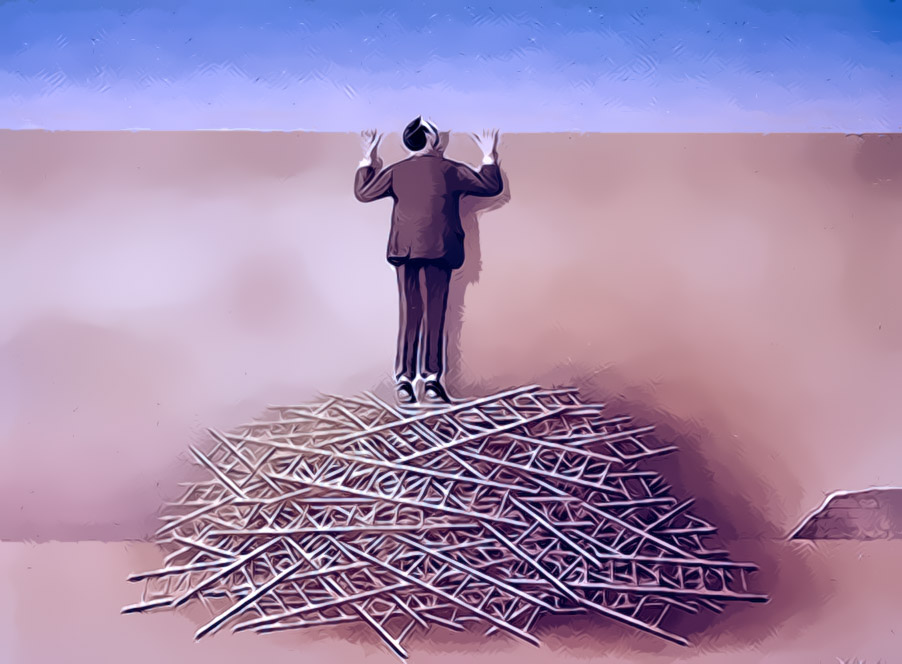by Guy Haselmann, Director, Capital Markets Strategy, Scotiabank GBM
Several very simple questions from Guy Haselmann of Scotiabank:
If QE is ending because it was so successful, then why is aggressive forward guidance necessary? If QE worked so well, then why will Yellen likely need to mention ‘the elevated number of part time workers’, ‘under-utilization of labor resources’ or ‘room for improvement in the labor market’? In regard to its inflation mandate, there is no evidence that QE has had any impact other than causing asset price inflation.
Central bankers and academics have propagated QE as an elixir for all economic ailments. Eurozone economic stagnation has now unleashed vociferous calls from proselytized market pundits that it is the ECB’s turn to administer QE medicine. Shouldn’t the lack of success at achieving the desired results in the US and Japan have curtailed such hasty Pavlovian responses?
QE is a powerful, but flawed tool; especially for Europe. Adaptation by the ECB will not boost aggregate demand across the Eurozone, or fix Europe’s structural problems. Those petitioning for QE consistently fail to address the costs of the policy. Those bullying Draghi also fail to recognize the inherent differences between the economic drivers of the US and Europe.
The benefits of QE are, for the most part, visible immediately. The costs and unintended consequences show up later. In the US, they may already be flashing red. The fact that there is (arguably) a poor tradeoff between benefits today, and unstable longer run outcomes (resulting in lower potential growth), is conveniently ignored.
Advocates fail to adequately explain how ballooning the central bank’s balance sheet through asset purchases leads to an increase in investment in new productive capacity. This modern day Phlogiston Theory fails to prove how the first order effect of widening the wealth divide through asset price inflation, trickles down into the second order effect of satisfactory job creation.
Certainly, QE-induced perpetually rising asset prices, and sinking volatility, likely boosted consumer confidence through the interpretation of lofty prices as ‘all must be well’. However, those aspects dangerously conspire to produce a false perception about the true state of economic fundamentals. The loudest voices regularly remain silent about how capital ends up being pushed into mispriced assets.
Debunking ECB QE
ECB QE would cause even-greater market distortions and misallocation of resources, undermining the long-run proper functions of the Eurozone economy. In addition, questions remain about its legality. If ECB purchases were made in asset-backed securities (rather than just EU sovereign debt), questions about fairness would likely arise.
European sovereign rates have already fallen many hundreds of basis points to multi-century low levels. 10 year rates have fallen to 0.99%, 1.38%, 2.38%, and 2.58% in Germany, France, Spain and Italy, respectively. In a sense, markets have already done the job for the ECB. The yield plunges are partially due to the binary aspects of the European Union. In other words, the common union will either work (converging yields) or break apart (diverging yield spreads). Great optimism (complacency?) is priced in.
Trying to navigate a QE drop in yields, of say another 25 basis points, would do little, if anything, to lift loan demand. It could even decrease overall lending. This is because those looking for a loan often received one when rates fell to historic lows; or alternatively, they were not able to get one due to the lousy quality of their credit. Since lenders typically receive marginally less for a loan when sovereign rates fall, the decline in the marginal worth of the loan means that the lending institutions should have less incentive to lend (i.e., loan supply falls).
At least the US has the benefit of a well-established corporate bond market. The EU has to rely more on bank loans to stimulate investment spending. In addition, it is difficult to argue that the benefits of QE would manifest via a depreciated Euro when global trade is so weak.
Often times, central bank policy attempts to ‘buy time’ to allow economic activity to self-correct or for politicians to agree on better remedies. Draghi had remarkable success after uttering “whatever it takes”. However, Draghi is fully aware of the quandary that doing too much (QE) for too long enables fiscal stalemate.
Brussels may have recognized that attempts to bring public sector debt under control have been counter-productive and resulted in higher debt-to-GDP ratios. Europe does not need QE. It needs serious reforms in state expenditures and taxation (in all non-productive subsidies) as well as flexibility in labor markets. Above all, the EU needs growth. Its current structure is faulty and QE from the ECB will not change that.
Stay tuned tomorrow following Yellen’s 10 a.m. speech as the exceptionally shrewd Super-Mario Draghi gives the keynote lunch address at noon.
“One time the police stopped me for speeding, and they said, ‘don’t you know the speed limit is 55 miles an hour?’ I said, ‘Yeah, I know, but I wasn’t gonna be out that long’”. – Steven Wright














